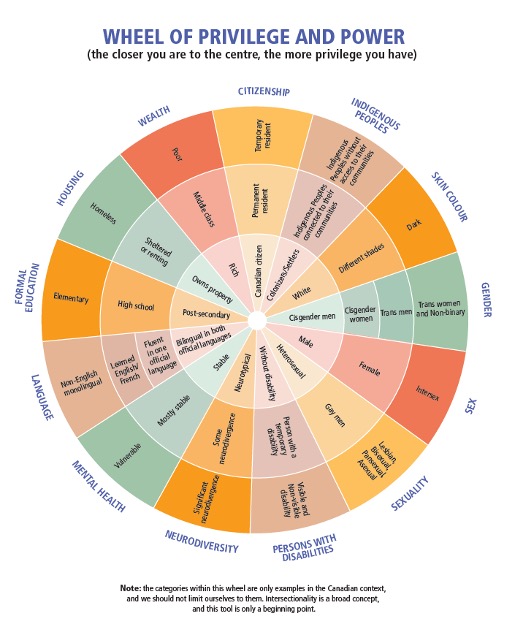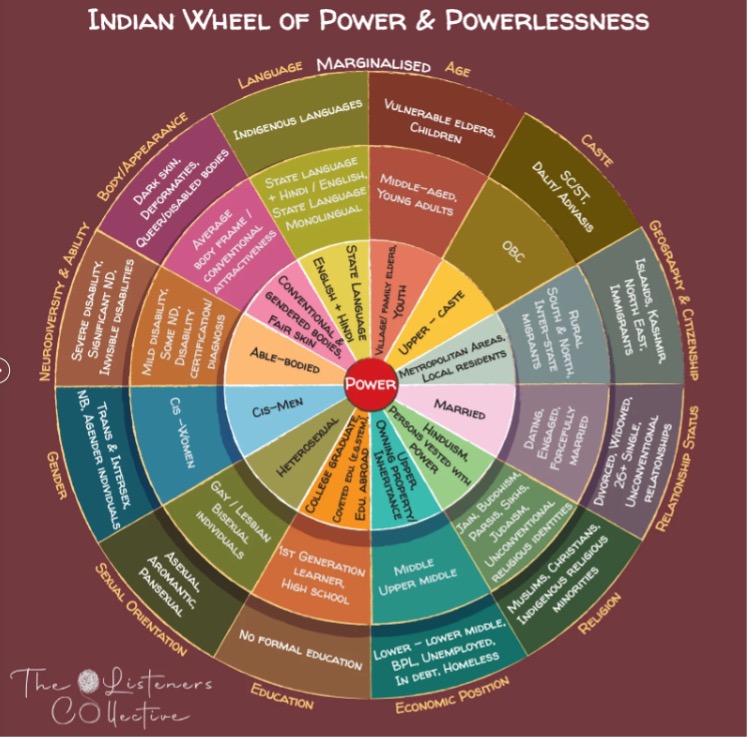- Home
- About Us
- The Team / Contact Us
- Books and Resources
- Privacy Policy
- Nonprofit Employer of Choice Award

 Unlike most South Asian parents, my parents did not insist that my brother and I become doctors or engineers or lawyers. They let us choose who we wanted to be except for one thing – they never wanted us to be powerful.
Unlike most South Asian parents, my parents did not insist that my brother and I become doctors or engineers or lawyers. They let us choose who we wanted to be except for one thing – they never wanted us to be powerful.
There were two reasons for this, the very basic one – they did not want either of us to go on an ego trip; but the more important one was that power in India had a negative connotation. Most often it meant you were corrupt, you were going to use your privilege to hurt someone (emotionally or physically), and you were just not a nice person. So, with those guidelines—become anyone but powerful—I set out to conquer the world.
Cut to 2020, there are calls for mandates and policies focused on anti-black racism and how we need to lean into our personal power to help change narratives and perspectives. And suddenly, I am wondering why is power being used in a positive way? So, I start engaging with my white friends and learn that power can be positive. In fact, on this side of the world – the Global North – power IS a positive word.
This gets me thinking, talking, listening, and reading. A few books and podcasts later, I realize that indeed power can be used positively. You know that “mind blown” emoji – that’s exactly how I felt. That was my moment of realization. Off I went to learn as much as I could about power AND privilege. I soon realized that they were intertwined and not at the same time.
Here’s the most important lesson I learned: power is contextual! In certain situations, your privilege affords you immense power and in certain situations, you are powerless. Let me give you two distinct examples to explain my point.
Example 1: A black woman CEO can feel very powerful in her position when she’s addressing her staff. The same black woman CEO may feel powerless when she’s stopped by the police.
Example 2: A brown woman consultant can feel very powerful when she is invited to give a speech to a room full of executives. The same brown woman may be powerless at home where she has a dominating partner.
In these two examples, the context of where these women are situated changes how powerful or powerless they feel in their professional and personal lives. Systemic inequities such as racism, gender, patriarchy show up differently and affect us differently.
In my case, when I analyzed the power and privilege I held as a brown woman in Canada vs. India, I was quite surprised. Consider the two different wheels of power/privilege to demonstrate this point. One is created for Canadian audiences and the other for Indian.
 Here’s where I stand with respect to my power and privilege in Canada: I am very privileged.
Here’s where I stand with respect to my power and privilege in Canada: I am very privileged.
I am privileged to have a post-secondary education, I am privileged to have a job, I am privileged to speak English as my first language, I am privileged to be able to rent, and most importantly, I am privileged to have been able to immigrate to Canada. But, do I have the power to stand up against the systemic inequities, I don’t. I may have personal power to stand up against these inequities in certain circumstances but for the most part I don’t; primarily, because my gender and the colour of my skin don’t afford me that. I didn’t realize until I moved to Canada, that while I grew up as an adult in the US and thought like a white individual, I don’t look like one. So, no matter how well-articulated I am, I will never be equal in power to a white individual. The systems just don’t exist to enable that. And, I am constantly dependent on others to show up in allyship to make these systems—however small or big—favourable towards me.
Here’s where I stand with respect to power and privilege in India: This wheel of power/powerlessness places me closest to power.
Not only am I privileged in India, I have incredible power because of my caste, my citizenship status, my relationship status, my language, age, education, economic status, etc. So, even with being a brown skinned woman in India, by virtue of all these attributes – many of which are not in my control (religion, caste, age, inheritance, etc.) – I am quite powerful.
I have never considered myself powerful in India. But these two wheels have driven home the point that contextualizing power is important. And, we all have a certain privilege – no matter our circumstances. We just need to recognize how we can use our privilege where others don’t have it so it can be a source of power for others.
Surabhi Jain is the Executive Director of Toronto’s Workforce Funder Collaborative. She brings over two decades of experience in the social impact sector working to advance access to education and jobs for marginalized communities in the US and Canada. As a founder of a women’s leadership fellowship, Surabhi brings together white, black, indigenous, and other women of colour to share their lived experiences around systemic inequities like race, gender, patriarchy. Additionally, as a consultative coach, Surabhi works with individuals and organizations to embed equity and inclusion in their work that leads to tangible changes and fosters a more inclusive environment. To connect with Surabhi, visit www.powerXprivilege.com.